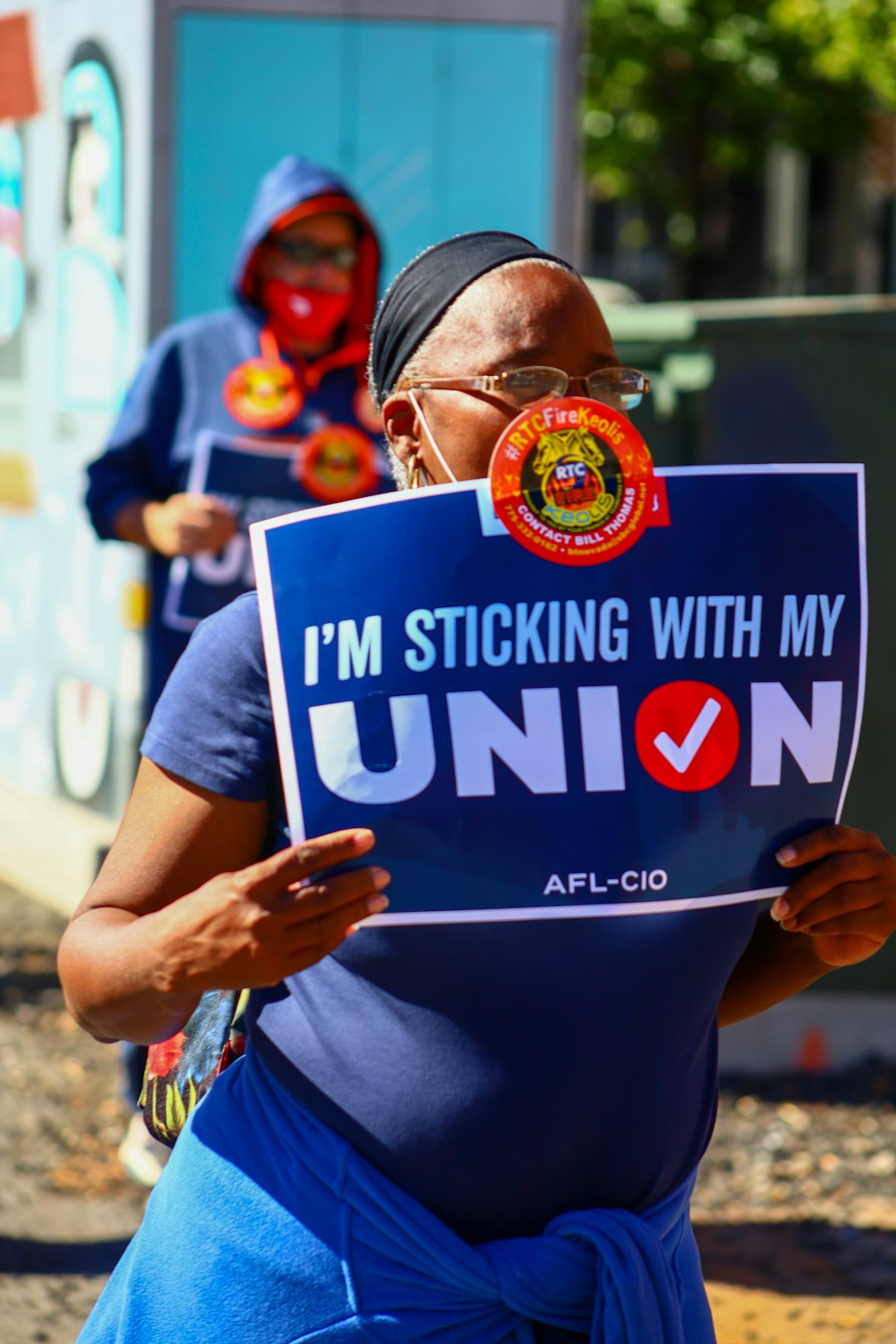Historic Union Victory Signals Neo-Liberal Death Spiral
Recent historic unionization victories suggest the 40-year neo-liberal experiment started during the 1980s is beginning to falter.

As musician Bob Dylan sang in 1964, "The times they are a-changing."
In January, the Bureau of Labor Statistics reported union membership in the United States in 2021 at 10.3 percent while the number of unionized workers continued its decline to 14 million.
To put that into perspective, in 1983, the first year for which comparable union data are
available, the unionization rate was 20.1 percent with 17.7 million union workers.
One of the intentional casualties of 40 years of neo-liberal Reaganomics is the precipitous drop in public-sector unions.
But might we finally be entering a unionization renaissance?
Might we be in the midst of a libertarian death spiral?
As The Guardian reported last month:
"The recent, much-publicized wave of union victories in the US at companies as varied as the giant coffee chain Starbucks, trendy outdoor outfitters REI and media group the New York Times is spurring hopes that this will somehow turn into a much larger unionization wave that lifts millions of Americans.
"This is an unusually promising moment for unions, labor strategists say, as they strain to figure out how best to build a larger wave, although they acknowledge it won’t be easy because US corporations fight so fiercely against unionization."
Friday marked what labor leaders are calling a “historic victory” when Staten Island, NY Amazon workers voted to create the first unionized warehouse of the nation's second largest employer.




Many hopes of seeing a unionized Amazon were dashed exactly one year ago when Bessemer, Alabama plant employees voted 2-1 against forming a union.
This led last summer to a National Labor Relations Board (NLRB) hearing officer determining Amazon’s interference in the election warranted another vote.
The outcome of that vote is still pending.
About Friday's victory, San Francisco State University director of labor and employment studies, John Logan, explained:
“I don’t think that many people thought that the Amazon Labor Union had much of a chance of winning at all. And I think we’re likely to see more of those [approaches] going forward.”
Teamsters president Sean O'Brien has pledged to use the momentum gained from this win to increase pressure on Amazon to unionize the entire company, explaining:
“We the Teamsters have the best resources out there, not just financially. We have the ability to utilize our members who work in the industry, who know the benefits of working under a collective bargaining agreement and having dignity and respect in the workplace."
Citing the company's “total disrespect” for its workers, O'Brien added:
“You have an employer like Jeff Bezos taking a joyride into space, and he bangs on his workers to be able to fund his trip. They’re awful, they’re disrespectful the way they treat their employees.”





While Amazon celebrates its first of no doubt what will be several successes, Starbucks is enjoying its own streak of recent union wins.
December of last year, Buffalo, NY's Elmwood store became the first of the coffee chain's locations in the country to unionize.
Earlier this year, Starbucks Workers United (SWU) won its third store election 25–3 in Mesa, Ariz. despite intense corporate pressure and 5.4 percent state union density.
Six out of seven stores have won NLRB elections while over 150 have filed for them.
NY Sen. Kirsten Gillibrand tweeted:

The "PRO" Act is the "Protecting the Right to Organize" Act that seeks to grow and strengthen union membership by:
"Introducing meaningful, enforceable penalties for companies and executives that violate workers’ rights;
"Expanding workers’ collective bargaining rights and closing loopholes that corporations use to exploit workers;
"Strengthening workers’ access to fair union elections and requiring corporations to respect the results."
After forty long years, Reaganomics might finally be on its last leg.
On the campaign trail, Joe Biden promised to raise taxes on Americans making more than $400,000 a year.
Last week, President Joe Biden introduced the "Billionaire Minimum Income Tax," a new plan to raise a trillion dollars by requiring a minimum 20% income tax on individuals' assets worth more than $100 million.
Quoting a White House fact sheet:
"Under current law, when an American worker earns a dollar of wages, that dollar is taxed as they earn it. But when a billionaire earns income because their investments increase in value, that gain is too often never taxed at all."
America has arrived at a crossroads, and the direction we take could plunge us deeper into neo-liberalism’s feudal tax cuts for the economic royalists, or again into an age where the wealthy pay their share of taxes and average workers producing the largess off which the wealthy profit will benefit from higher wages, better living standards, and democratic workplaces.
As progressive radio talk show host on Sirius XM and author Thom Hartmann warned recently:
"If the neoliberals win and Biden and the Democrats back down, it’s unlikely America will simply slide back into a 'friendly neoliberalism' like we had before the Trump presidency.
"Instead, we will almost certainly follow the path that Russia and Hungary have trod, embracing Friedman’s economic policies and the authoritarian strongman politics of oligarchy necessary to enforce them. It will be the end of the largest and most noble parts of the American Experiment."


